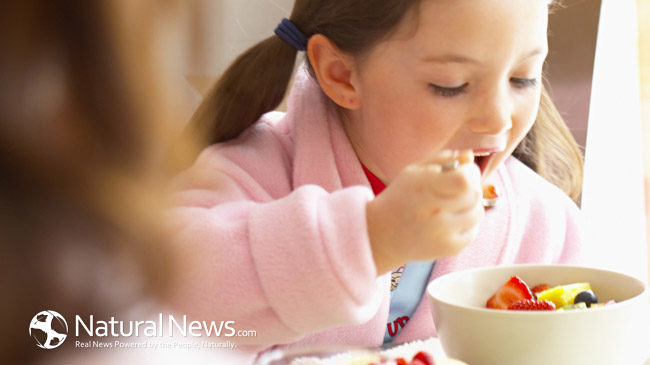What are the best and healthiest foods for your children? The Internet is filled with controversial advice on this seemingly simple and intuitive question. After all, the human race has been somehow feeding their babies and even teenagers without expert advice from scientists and Internet gurus until now. So, how about taking the natural and time-tested route in kids nutrition?
Starting from the beginnings, “breast is best”, meaning breast milk is the best nutrition for infants. It contains everything a baby needs for growth and proper development. Furthermore, prolonged breastfeeding is even better: it helps form a strong immune system for the child since mother’s immunity is shared through her milk. Cow milk, on the contrary, taxes the young immune system of the baby and can lead to gastrointestinal problems if introduced too young (before 1 year of age). Formula is an invention of the 20th century, and is certainly not a traditional food. It is packed with a host of artificial ingredients and is often soy-based which is more a reflection of how much soy is grown in the US than of health benefits of soy (none) for the baby.
At about six months of age you can begin to offer your baby simple wholesome foods such as vegetables, fruit and meat. Grain products might not be the best first baby foods, contrary to popular opinion. Grains are relatively hard to digest and some food allergies have been linked to grains containing gluten (wheat and barley). It is not really surprising considering that grains were introduced into human diet only relatively recently – 10,000 years ago or less.
Children need healthy foods to grow healthy. This means foods without dyes, coloring, synthetic ingredients, artificial flavors, chemicals and refined products. That last one may be confusing. What are refined products? Unfortunately, these are everywhere and it is difficult to avoid them.
Refined products include:
-
sugar
-
table salt
-
white flour
-
white rice
-
refined vegetable oils
These products are not best for children because they provide empty calories devoid of any nutritional value: no vitamins, no minerals, no amino acids, no protein, etc. How to avoid refined foods? Read ingredients and buy products that contain only whole unrefined foods. Cooked steel-cut oats are a great alternative to morning cheerios and brown rice even tastes better than white one.
Nowadays, supermarkets are bursting with products and advertising for children, including fancy food packaging and promises of superior quality. Nutrition for children is nothing new, and does not require invention of a wheel. If you want to know more about nourishing foods supported by long-lasting traditions, one of the best resources is the bestselling book Real Food for Mother and Baby by Nina Planck. This book is not about recipes but looks closely at the science and history of nutrition, and it reads like a good detective story. Other sources of good nutrition advice for children are Weston A. Price Foundation and The Nourishing Traditions Book of Baby and Child Care.
Best wishes and happy eating,
Marigold
Learn more about Marigold at her health coaching website.





